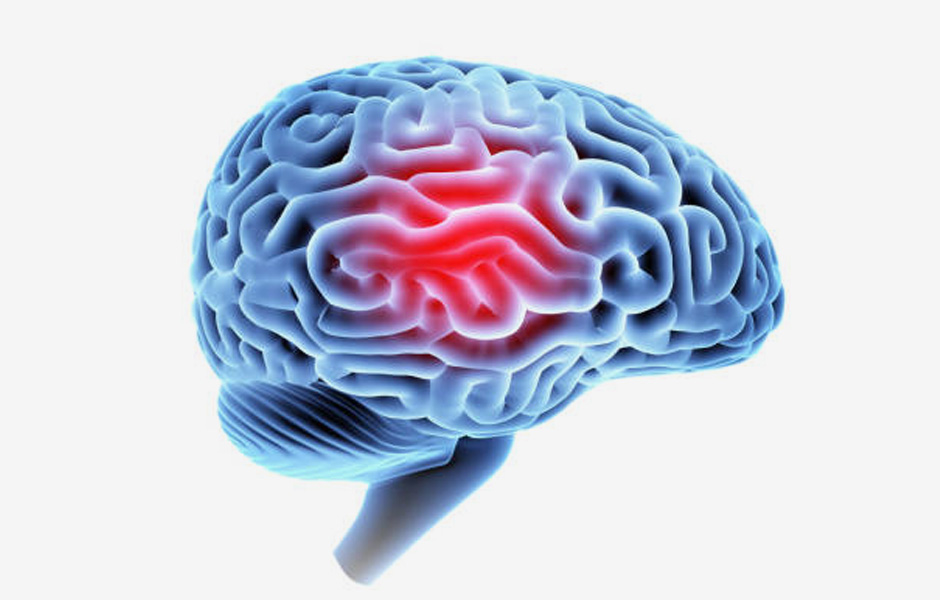ALL YOU NEED TO KNOW ABOUT TRAUMATIC BRAIN INJURY; CAUSES, SYMPTOMS, AND TREATMENT.
Traumatic brain injuries known as TBI occurs when a violent force is suddenly applied to the brain. This can be as a result of a sudden blow to the head or a jolt to the body which can result in brain damage. This injury can cause bruising, bleeding, tearing of nerve fibres, skull fractures and bleeding in the brain. The brain injury can be a penetrating one such as a gunshot wound to the head or non-brain injury such as hitting the head against a dashboard or falling and hitting them against the floor. Penetrating traumatic brain injury is usually bloody while non-penetrating traumatic brain injury usually isn't.
Traumatic brain injuries are 4 times more likely to occur in males than in females. It is more likely to occur also in people older than the age of 65, because of imbalance that most likely comes with age, infants can also experience TBI's because they are prone to falling from beds, slipping from their parent's hand, falling while trying to walk or crawl and sometimes from abuse. Certain professional workers and sportsmen are at a higher risk of traumatic brain injuries because of the risk associated with their jobs.
Traumatic brain injuries are fairly common and are one of the leading types of illnesses in the world.
PEOPLE AT A HIGHER RISK OF TRAUMATIC BRAIN INJURIES ARE;
⦁ Athletes
⦁ Factories workers
⦁ The elderlies
⦁ Infants
⦁ Police and law enforcement agents
⦁ Construction workers
⦁ Military Officials
TYPES OF TRAUMATIC BRAIN INJURY?
There are many types of brain injury based on various factors such as neurological symptoms that may have been exhibited during the time of the surgery, memory loss and loss of consciousness and it may also show as an abnormality in the brain MRI. Traumatic brain injuries have various types and grades as follows;
1. COMPLICATED TRAUMATIC BRAIN INJURY: In this case, the brain MRI shows major changes such as bleeding in the head and a crack in the skull.
2. UNCOMPLICATED TRAUMATIC BRAIN INJURY: In this case, the brain MRI is normal regardless of the grade or type of traumatic brain injury that occurred.
3. CONCUSSIONS: These are the most common type of traumatic brain injury there is. 3/4 cases of traumatic brain injuries are concussions, they could be a brief loss of consciousness, feeling dazed or in occasional cases slight memory loss.
4. MODERATE TRAUMATIC BRAIN INJURY: In this case, the victim losses consciousness for over 30 minutes but is usually less than 24hours.
5. SEVERE TRAUMATIC BRAIN INJURY: The type of head injury comes with the loss o consciousness for over a full day. It causes changes in the brain and affects the brain MRI or head CT
6. OPEN TRAUMATIC BRAIN INJURY: This is often called a penetrating traumatic brain injury by healthcare providers. It is when an injury occurs through a penetrating cause such as a bullet to the head, a knife injury or any sharp object that can go through the skull. Any kind of object that may get through the brain will damage the brain tissue.
7. CLOSED TRAUMATIC BRAIN INJURY: Almost all traumatic brain injuries, are closed. This means an outside caused a sudden jolt or blow to the head but did not penetrate the skull. This also injures the brain and causes it to swell but hardly causes it to bleed.
8. NON-TRAUMATIC/ HYPNOTIC/ ANOXIC BRAIN INJURIES: These are brain injuries that are not caused by trauma. They can be as a result of seizures, near-drowning incidents, strokes or any accident that may deprive the brain of oxygen for some time.
CAUSES OF TRAUMATIC BRAIN INJURY
⦁ Falls
⦁ Collision with an object
⦁ Vehicle Accidents
⦁ Being struck
SYMPTOMS OF TRAUMATIC BRAIN INJURIES
There are many symptoms associated with traumatic brain injury, and they fall into these four major categories;
⦁ PHYSICAL TRAUMATIC BRAIN INJURY: Symptoms associated with this TBI is headaches, physical fatigue, paralysis, seizures, insomnia, weakness, sensitivity to light, mental fatigue, extreme sensitivity to light and tremours.
⦁ COGNITIVE TRAUMATIC BRAIN INJURY: The symptoms for cognitive brain injury are; short attention span, difficulty processing information and understanding others, loss of memory, finding it difficult to express thoughts and or difficulty in understanding abstract concepts.
⦁ BEHAVIORAL TRAUMATIC BRAIN INJURY: The symptoms associated with behavioural TBI's are; hyper activeness, irritability, sluggishness, impatience, aggressiveness and no tolerance for stress.
⦁ PERCEPTUAL TRAUMATIC BRAIN INJURY: The symptoms associated with this include; inability to taste, high sensitivity to pain, change of sensitivity to hearing, sense of touch and blurry vision.
TREATMENT OF TRAUMATIC BRAIN INJURY
Anyone with any type of brain injury should receive immediate medical attention. However mild the injury may be, you must get medical attention immediately. There are 3 ways to treat traumatic brain injuries and they are as follows;
1. SURGICAL TREATMENTS: For some traumatic brain injury cases surgery may be necessary to help remove a hematoma which is internal bleeding and the blood may start to clot in some areas of the brain. Surgery is also performed to create an opening in the skull to relieve pressure inside the skull and also to repair a fractured skull. Usually, any skull fracture that is not directly pressing into the brain can heal by its self but if it does press into the brain, surgery would have to be performed.
2. NON-SURGICAL TREATMENTS: These are treatments that are done using medication prescribed by healthcare workers. The medication is used to control symptoms. It may be used as a sedative, an anti-seizure medication, to induce coma, as pain relief and to increase urine output.
3. LONG-TERM TREATMENT: When a person has a severe traumatic brain injury, they may need rehabilitation which takes time, this is dependent solely on the degree and type of their injury. They may have to learn the basic motor skill all over again. They may need physical or occupational therapy depending on the type of injury.







